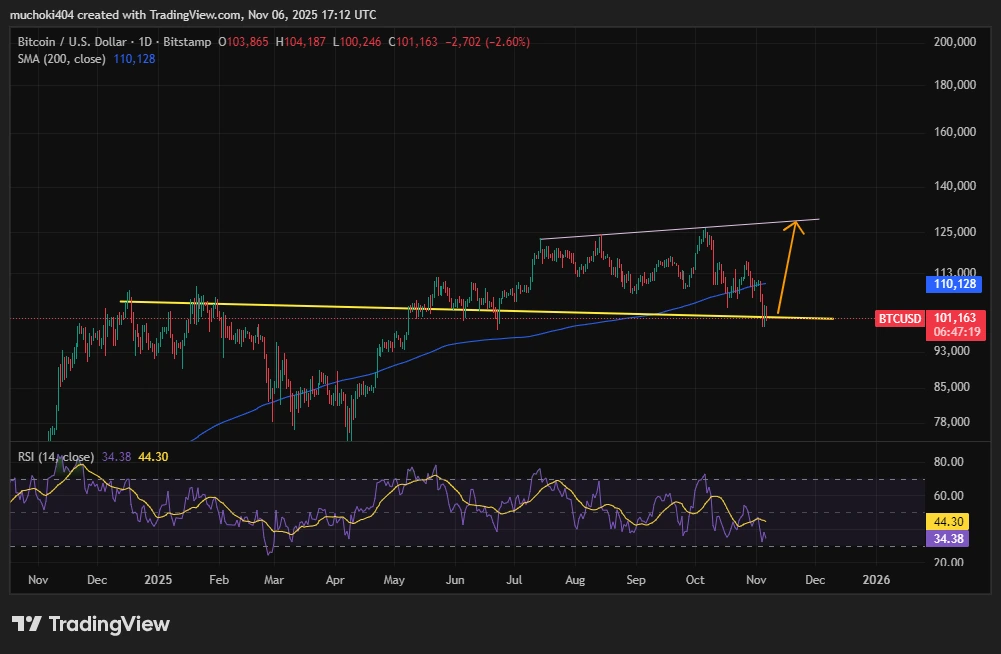Ray Dalio Warns of Potential US Dollar Crisis
- Ray Dalio predicts US Dollar confidence crisis impacts markets.
- Dalio suggests Bitcoin and gold as hedge alternatives.
- US fiscal policies could shift investor behavior globally.
Ray Dalio, founder of Bridgewater Associates, warns of potential US Dollar instability, urging attention to decentralized assets like Bitcoin, speaking recently in Singapore.
Dalio’s warnings highlight potential shifts toward decentralized assets, impacting global investor behavior amid concerns over US Dollar’s stability.
Ray Dalio of Bridgewater Associates warns that a growing national debt threatens the US Dollar’s stability. Investors may shift to alternatives like Bitcoin and gold. Dalio emphasizes loss of confidence in fiscal discipline could drive this shift.
Ray Dalio argues unsustainable US fiscal practices could lead to dollar depreciation. The outcome may prompt investors to seek decentralized alternatives. Dalio cites Bitcoin and gold as potential beneficiaries of this financial shift.
The potential crisis could impact various sectors, including Treasury markets and sovereign debt. Shifts to alternatives might reshape financial landscapes. Market behavior reflects diminishing global confidence in the US Dollar.
Dalio’s remarks highlight significant financial and geopolitical consequences. Investors may react to predicted fiscal instability, moving away from dollar-based assets. Interest rates and international investor behavior may change under these conditions.
Historical parallels from the 1930-40 period mirror these potential outcomes. Investors sought gold and non-sovereign assets in past monetary crises, showing possible trends. Cryptocurrencies like Bitcoin may experience similar interest as preferences shift.
Market responses to debt concerns could transform financial strategies. Past monetary disruptions saw investors favoring non-fiat assets, supporting Dalio’s recent analysis. “Allow interest rates to go up and have a debt default crisis, or print money and buy the debt that others won’t buy. Both paths… are detrimental to the dollar’s strength,” he notes.
Disclaimer: The content of this article solely reflects the author's opinion and does not represent the platform in any capacity. This article is not intended to serve as a reference for making investment decisions.
You may also like
Fed Split Over December Decision: Focus on Employment or Tackle Rising Prices?
- Fed officials debate December rate cut likelihood (67.3%), balancing labor market risks vs. inflation amid divided policy views. - Governor Cook prioritizes employment risks over inflation, while Daly supports "modestly restrictive" policy to curb price pressures. - Goolsbee warns of rising inflation, contrasting with Myron's call for 50-basis-point cuts to prevent recession, highlighting policy uncertainty. - Fed's $125B liquidity injections and balance-sheet pause signal easing, yet Powell cautions aga

The $9.8M FAST NY Grant and Transformation of the Xerox Campus: Maximizing Industrial Property Potential in Webster, NY
- NY's $9.8M FAST NY Grant funds Xerox campus redevelopment in Webster, aiming to boost industrial real estate and advanced manufacturing. - The 300-acre brownfield site will receive infrastructure upgrades, creating 1M sq ft of industrial space by 2025 with proximity to major transportation and talent. - Secondary markets like Webster outperform primary cities in growth, driven by affordability, skilled labor, and public-private partnerships aligning with state economic goals. - Infrastructure investments

Japan’s FSA Backs Major New Stablecoin Initiative
In Brief Japan’s FSA supports a major new stablecoin pilot involving three major banks. The initiative explores regulatory compliance for stablecoins as electronic payment instruments. This marks the first project of the newly formed "Payment Innovation Project" (PIP).

JPMorgan’s Analyst Says Bitcoin Needs to Hit $170k to Match Gold’s Private Investment Value

